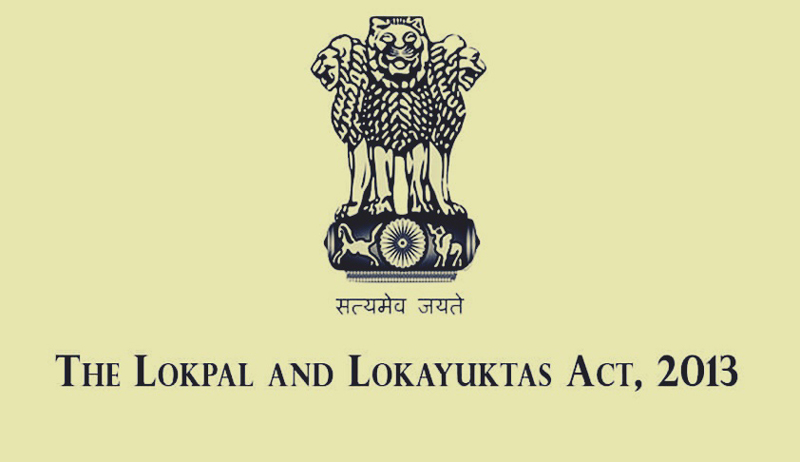Step imperative due to winding up of Accountability Commission
Says explicit provision of Central Act remains unimplemented
Mohinder Verma
JAMMU, Nov 5: Stating that explicit provision of the Lokpal and Lokayuktas Act passed by the Parliament nearly six years back has remained unimplemented so far, the Law Commission headed by Justice (retd) M K Hanjura has recommended setting up of Lokayukta in the Union Territory of Jammu and Kashmir to deal with the complaints relating to corruption against public functionaries/servants.
The Section 63 of the Lokpal and Lokayuktas Act, 2013 states: “Every State shall establish a body to be known as the Lokayukta, if not so established, constituted or appointed, by a law made by the State Legislature, to deal with complaints relating to corruption against public functionaries, within a period of one year from the date of commencement of this Act”.
However, no serious attention was paid towards this provision of the law passed by the Parliament on the ground that in Jammu and Kashmir similar law titled Accountability Commission Act was already passed by the State Legislature in the year 2002.
As J&K Accountability Commission Act has been repealed by the Jammu and Kashmir Reorganization Act passed by the Parliament in the first week of August this year, the Law Commission has found it appropriate to have Lokayukta in the Union Territory of J&K so that complaints of corruption against the public functionaries receive due attention.
“The prime object behind the abrogation of Article 370 of the Constitution of India is to weed out and eradicate the cancer of corruption with which our society is woven and to nip this evil in the bud it is of essence to have a Lokayukta in the Union Territory”, Justice (retd) M K Hanjura has mentioned in the report submitted to the Chief Secretary BVR Subrahmanyam.
“In view of the mandate of Section 63 of the Lokpal and Lokayuktas Act, 2013, the Lokayukta Act has to be enacted to replace the J&K Accountability Commission Act, 2002”, the Law Commission said, adding “Lokayukta shall consist of a Chairperson, who is or has been a Chief Justice or Judge of a High Court and four members out of whom two shall be Judicial Members”.
The jurisdiction of the Lokayukta, as per the Law Commission, shall include Ministers, Members of Legislative Assembly, officers and employees of the Union Territory from amongst the public servants defined in sub-clauses (i) and (ii) of clause (c) of Section 2 of the Prevention of Corruption Act, 1988 when serving or who has served in connection with the affairs of the Union Territory.
“Moreover, Lokayukta shall have jurisdiction over all officers and employees referred to in clause (c) equivalent in any body or board or corporation or authority or company established by an Act of Parliament or the Legislative Assembly of the Union Territory or wholly or partly financed by the Government or controlled by it”, the Law Commission said in the recommendation.
The Law Commission said that Lokayukta shall constitute an Inquiry Wing headed by the Director of Inquiry for the purpose of conducting inquiry into any offence alleged to have been committed by a public servant. “Till such time the Inquiry Wing is constituted by the Lokayukta, the Government shall make available such number of officers and other staff from such of its departments, as may be required, for conducting inquiry”, read a draft bill prepared by the Law Commission.
About the procedure in respect of preliminary inquiry and detailed inquiry, the Law Commission said that Lokayukta shall, on receipt of a complaint, order for preliminary inquiry against any public servant to its Inquiry Wing or any agency of the Government to ascertain whether there exists a prima facie case for proceeding in the matter. “The Lokayukta can even forward the complaint to the State Vigilance Commission for conducting a preliminary inquiry in respect of public servants”, the Law Commission said.
On completion of the inquiry, if the Lokayukta is satisfied that there is prima-facie evidence of the commission of an offence under the Prevention of Corruption Act, 1988, or of any wrong doing, it shall, within a period of 15 days of the completion of such inquiry, send its report to the Vigilance Commission of the Union Territory for appropriate action, said the draft of the Act prepared by the Law Commission.
Now, it is to be seen whether the Government acts on this vital recommendation of the Law Commission or sits over the same for unspecified period, sources remarked.


